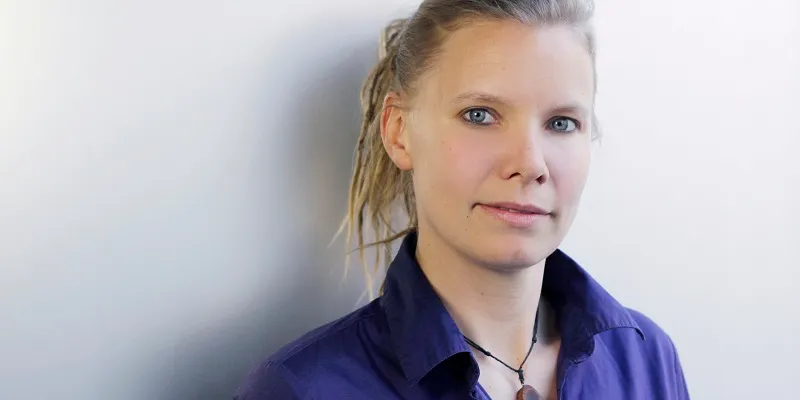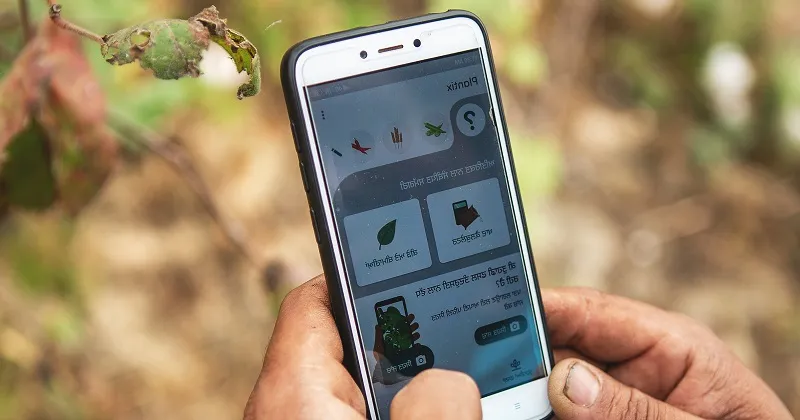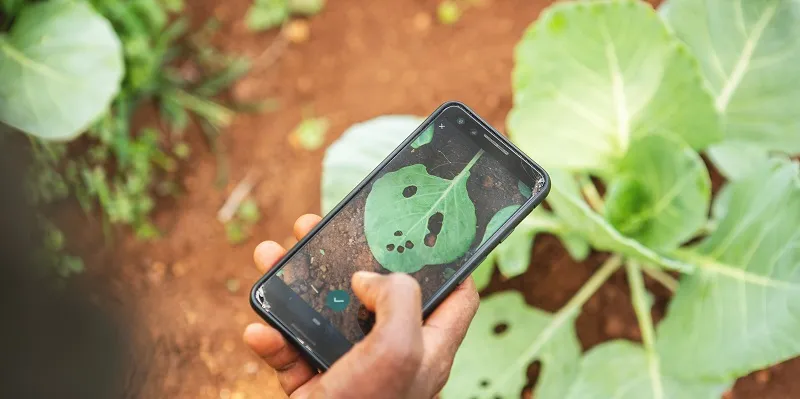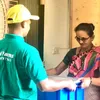Here's how this agritech startup is using AI to help farmers improve crop yield
Hyderabad and Berlin-based startup Plantix has developed an app, which has helped over 10 million farmers save crops, and work with agri retail and manufacturing companies.
Agriculture is the primary source of livelihood for about 58 percent of India’s population, according to the India Brand Equity Foundation (IBEF). While millions of people in India depend on farming for their livelihoods, many of them still struggle with losing crops to disease or other reasons. Several startups are trying to change just that.
In order to help farmers use technology to improve their crop health and also find the right inputs to grow crops, Plantix was started in 2015 by husband-wife duo Rob Strey and Simone Strey under their startup Progressive Environmental and Agricultural Technologies (PEAT).
The The Hyderabad and Belin-based startup uses artificial intelligence (AI) to identify plant diseases, pests, and nutrient deficiencies. Apart from this, it also helps fight crop losses and unnecessary or wrong use of pesticides.
“The Plantix app ensures farmers get the right information and recommendations. It lends them a helping hand throughout the entire season and is available 24x7. It is a free app and is a B2C product that rapidly scales. As many as 1.2 million farmers use the app at least once per month,” says Simone, Founder of Peat, the startup that owns Plantix.
Today, the Plantix app has 25 million downloads in India, and more than 10 million use the app on a yearly basis.

Simone, co-founder of Peat Plantix
The beginnings
Rob and Simone conceived the idea of using image recognition and machine learning to help farmers protect their crops during their honeymoon in the Amazon forest, where they used to work on a research project in 2015.
During the project, they met many farmers, and witnessed the difficulties they faced in identifying the problems.
Once back in Germany, they convinced five people to join them. They realised that their ML-driven app worked best in high-density farming areas. The founders then flew to Hyderabad and set up their company.
Solving three issues
According to the founders, there are three main issues they set out to solve with their product. The first issue is the widespread use of unsuitable pesticides, which is not only a waste of money, but potentially harms human health and environment. Many farmers do not know what infests their crops and the shopkeepers have not seen the fields before selling the product. This, as a consequence, leads to the application of wrong pesticides.
The second issue is of quality, availability, and prices of products in the market. There are many spurious products being sold, and farmers have very few options to choose from at their local shop, and often end up paying high prices.
During the coronavirus pandemic and during normal days, farmers are always in need of the right inputs at the right price.
The third issue is the lack of data and information around smallholder farming.

Plantix App
How it works?
To begin with, the founders focussed on understanding users and building a computer vision app to help farmers save crops and integrate input retailers.
The company uses artificial intelligence (AI) to identify plant diseases, pests, and nutrient deficiencies. The only thing the farmer needs to do is click an image of the crop with their smartphone, and the software identifies the problem. Plantix then gives recommendations and support to find the right product which helps fight the disease. The app also gives disease alert to farmers.
The company is also making farmers progressive by making them embrace digital technology to tackle the inefficiencies in the agri-input supply chain. The startup knows what is going on where, in real time, which gives them a competitive edge in the agri-input value chain.
“We have built the biggest network of agri-input retail shops in India, and have connected farmers and the prescribed products with the shops, all free of cost,” says Simone.
The business
Early this year, Plantix merged with a startup called Salesbee, which offers a digital distribution system to supply agri-input shops. With this new member to the Plantix family, the founders are now able to approach producers, purchase in bulk, and supply quality agricultural input products like seeds, fertilisers, and pesticides to the shops.
“It is at this step that we are making our margin from retailers,” says Simone. Plantix also works with agro-chemical companies as these large companies have a huge interest in image recognition for diagnostic purposes.
“They all tried their own approaches and failed. In contrast, we could show that we can deliver highly reliable detection results and steep learning curves and thus build trust in our image recognition service. So, we could sell our yearly subscription for our image recognition API,” adds Simone.
“Our database is equipped with up-to-date information about agricultural products and correct treatments, and it can help farmers and shops with precise prescriptions to strike a deal on the best-suited product. By this, we know what is most wanted and needed in the market,” Simone adds.
Simone says that with grants and VC support, the company has raised $15 million from Index Ventures, Atlantic Labs, RTP Global, and Piton Capital.

Plantix app
Plans ahead
There are more than 150 million farmers in India, and Plantix wants to double its usage in the coming months. The company currently competes with Gramophone, AgNext, and Fasal.
The startup did not want to disclose its revenues as it has spent the last four years in attracting customers and building the product. The startup is also raising funds as it is looking to ramp up its business teams to win agro-chemical companies across the world.
Edited by Javed Gaihlot and Megha Reddy









